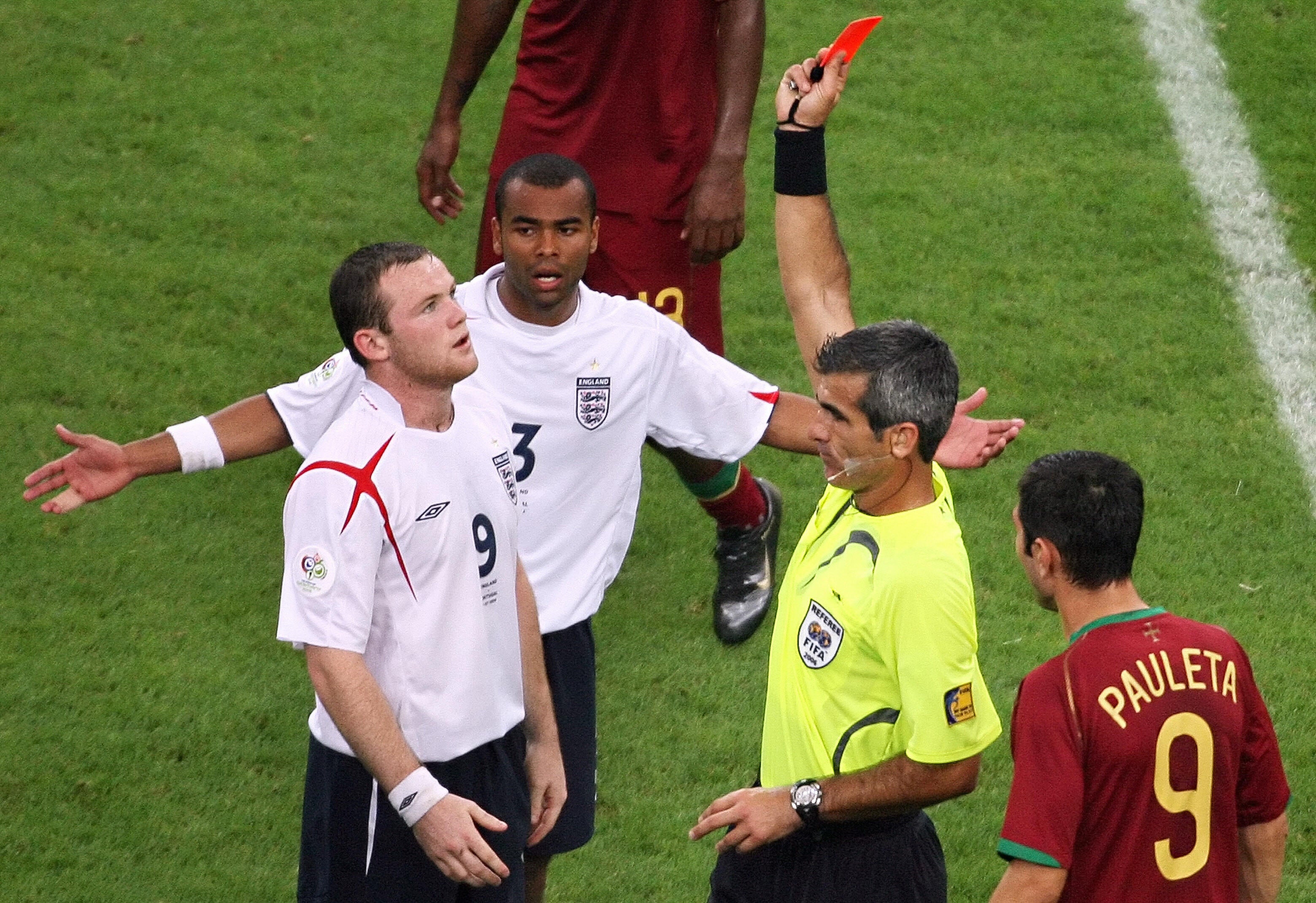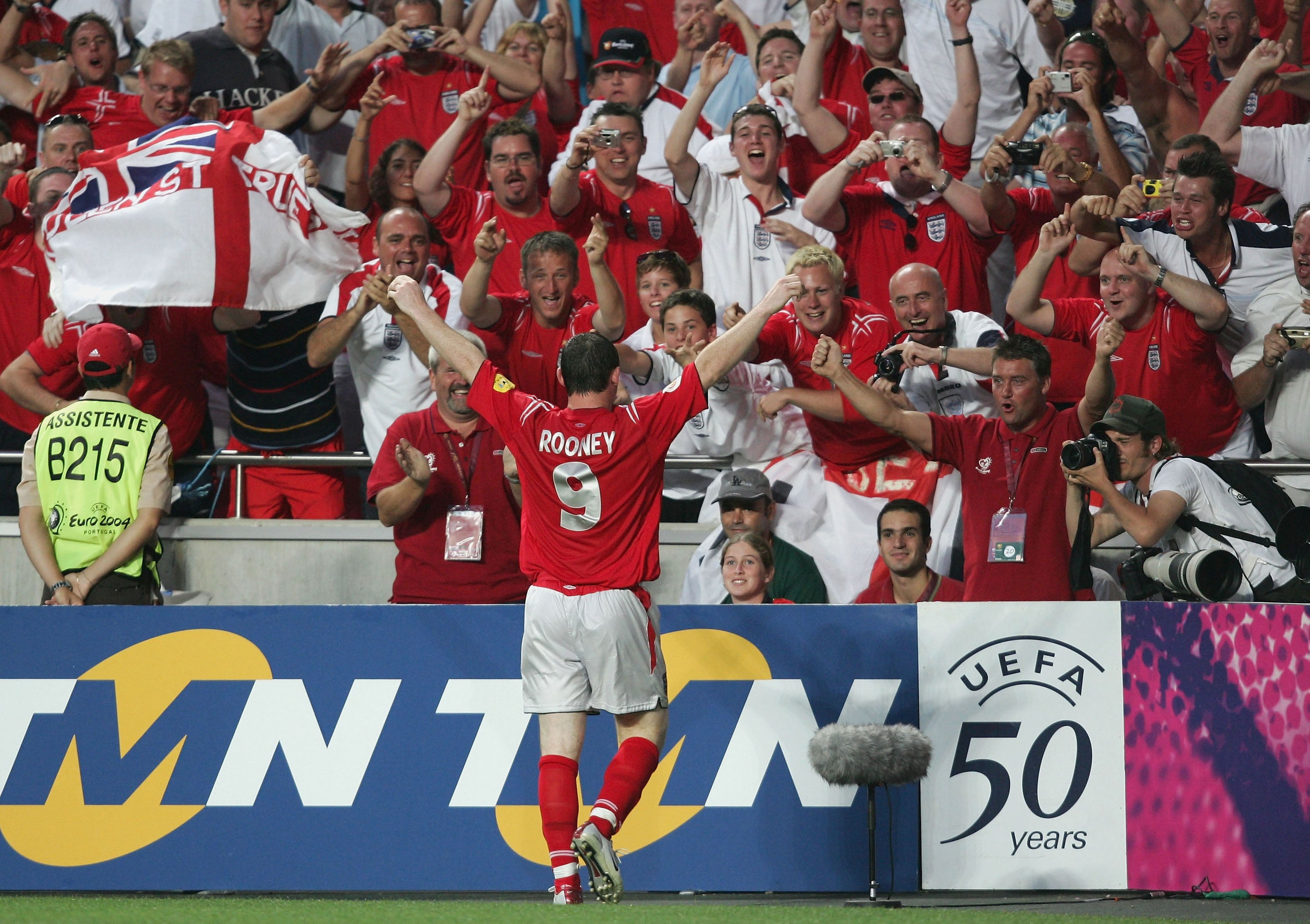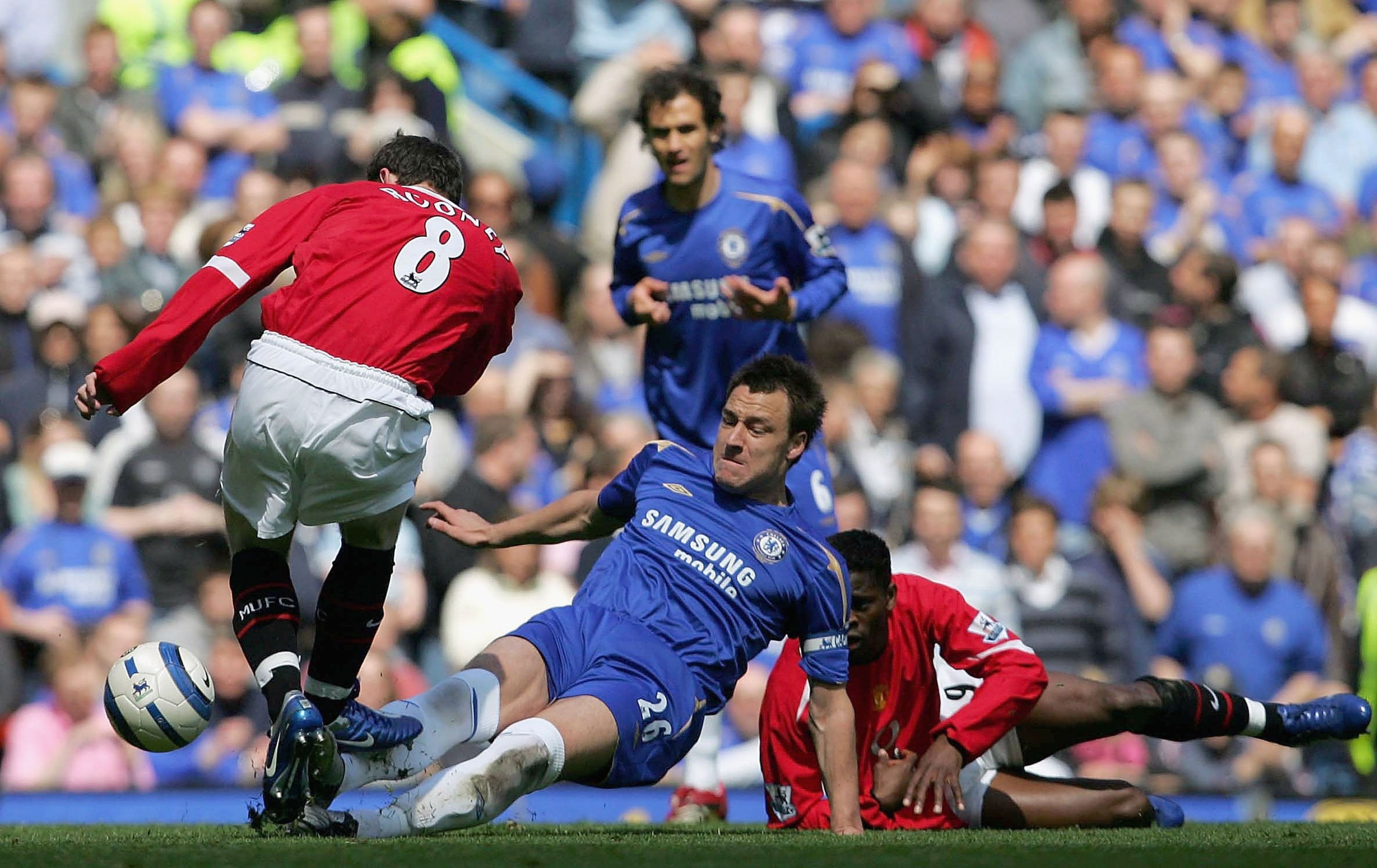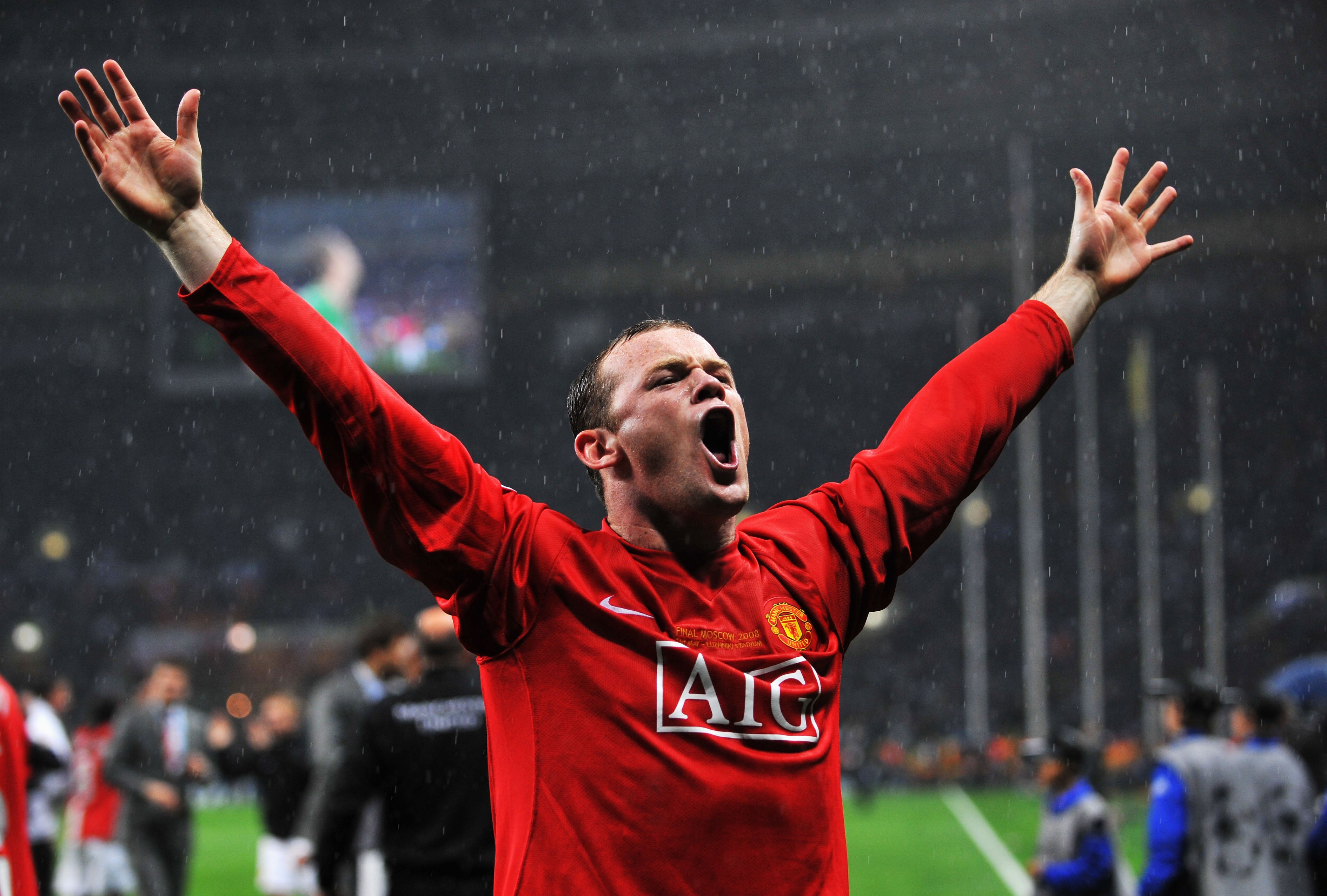Wayne Rooney documentary reveals devastation behind the glory of England’s most exhilarating talent
In the new film Rooney, released on Friday, the former Manchester United and England striker reveals the often damaging impact his sudden emergence into the national spotlight had on himself and his family

Your support helps us to tell the story
From reproductive rights to climate change to Big Tech, The Independent is on the ground when the story is developing. Whether it's investigating the financials of Elon Musk's pro-Trump PAC or producing our latest documentary, 'The A Word', which shines a light on the American women fighting for reproductive rights, we know how important it is to parse out the facts from the messaging.
At such a critical moment in US history, we need reporters on the ground. Your donation allows us to keep sending journalists to speak to both sides of the story.
The Independent is trusted by Americans across the entire political spectrum. And unlike many other quality news outlets, we choose not to lock Americans out of our reporting and analysis with paywalls. We believe quality journalism should be available to everyone, paid for by those who can afford it.
Your support makes all the difference.Most of the talking heads in Rooney are close to the film’s subject – his former teammates, old managers and family members – but the best encapsulation of the Wayne Rooney that this film seeks to portray comes from someone who was only ever a rival and competitor.
Thierry Henry half knew what to expect before his first encounter with a 16-year-old Rooney – a child with “the body of a man”, so he had heard – but only once he was up close did he realise why everybody would soon know and then remember the name.
“Sometimes when you catch eyes with players you know what they are about,” Henry recalls, thinking back to Rooney’s iconic goal at Goodison Park against Arsenal in 2002. “You looked at him and knew he wanted to succeed, he wanted to destroy everything that was in front of him.”
From that day on, that was exactly what Rooney would do: he succeeded, unquestionably, but with a trail of destruction left in his wake. Much of it inflicted on opposition defences, but at least some on himself and his family too.
Rooney would also discover that this chaos always made for more compelling storytelling.
In some ways, Rooney follows the same formula. Winning the Champions League in Moscow takes up around 30 seconds of Rooney’srunning time. Breaking Bobby Charlton’s record to become Manchester United’s all-time leading goalscorer is afforded barely any attention and there is no mention of Rooney achieving the same for his country.
The final 15 years of one of the finest playing careers in English football’s history is trash-compacted into the film’s last 20 minutes. That is no accident.
“I think with these films, particularly with sportspeople, it’s very easy to go away and Google all the highlights and the best parts of the career and regurgitate the autobiography that might have been written a few years ago,” Matt Smith, the film’s director, tells The Independent. “That’s the low hanging fruit.”
For the vast majority of the film, Smith instead focuses on the early years of Rooney’s playing career, from the goal against Arsenal to the sending off against Portugal at the 2006 World Cup, and the private family life that was irreparably changed in the process.

This is Rooney’s opportunity to tell his own story of that formative time in his life, independent of the national broadcast and print media that built his image, and he is afforded the space to do so.
As with many of these increasingly popular sports documentaries curated for streaming platforms, there is the suspicion of some stage management in that. But Rooney is not without moments of introspection and self-criticism, particularly on the subject of his infidelity to Coleen.
This is also Rooney’s opportunity to take ownership of that combustible, destructive side to his image and as the opening shot of him hooded up in a boxing robe, pounding a punch bag, might suggest, he is not exactly desperate to shed it.
There are tales of regularly travelling to Southport as a youngster for the sole purpose of fighting on the street. Once, a 12-year-old Rooney returned home to his parents from one such trip with his eye stitched up. A year later, he had his “jaw snapped” in a fight in Manchester after another night thrashing around in mosh pits to the likes of Cast and Stereophonics.
“There were things I did which were wrong. I wouldn’t say I was a bully but there were things I shouldn’t have done and crossed the line,” he says. “I don’t know if it was anger or if there was an enjoyment in it.”
If there was an enjoyment in it, it was probably because Rooney knew that when this aggression was channelled correctly and fused with his remarkable technical ability as a footballer, it made him the most exhilarating English player in a generation.
That was never more the case than at Euro 2004, which is treated in Rooney as both the end of the beginning and the beginning of the end, the summer that he announced himself as a unique talent on the world stage and set the standard to which the rest of his career was compared.

Despite being just 18-years-old, Rooney reveals that he believed he was the best player in the world before that tournament. At that point, you have to remind yourself that he had only scored a goal about once every four games for Everton the previous season, because the evidence that follows is otherwise compelling.
To see him in Lisbon bullying and intimidating a Zinedine Zidane-led France, the best international side of the early 2000s, and his targeting of Lilian Thuram for a perceived slight in the pre-match press rounds, you remember why director Werner Herzog declared Rooney to be his favourite player, one that was “half bison, half viper”.
This mutant blend of power and dexterity, brute strength and venom was like nothing seen in a player before or since but could damage Rooney himself just as much as it could hurt an opponent, even to this day.
As you may by now have read, there is an admission in this film that he wore longer studs than usual against champions-elect Chelsea at Stamford Bridge in 2006 with the intention of “hurting someone”.

John Terry, an England teammate only a couple of months away from the World Cup, was the unlucky victim and went home on crutches. That admission could now end with Rooney being charged by the Football Association for deliberately setting out to injure an opponent, as if he does not already have enough on his plate at the moment.
That was also the game that saw Rooney break three metatarsals in his right foot, putting his own World Cup participation in doubt. After being rushed to fitness, he then failed to report a fresh, 6cm groin tear to England’s medical staff in his first training session back. “I didn’t know that,” remarks Sven-Goran Eriksson, watching Rooney’s admission on an iPad.
That summer’s struggles for fitness and form eventually resulted in a crescendo of frustration, the stamp on Ricardo Carvalho’s groin and the sending off against Portugal that hastened England’s exit at the quarter-final stage. To this day, Rooney does not know if the stamp was intentional or not. “I couldn’t tell you. My head just completely blurred out. I don’t know if I’ve meant to do it.”
But for all the drama of that red card and Rooney “smashing up” the dressing room in Gelsenkirchen, the film is often just as interested in his attempts to reconcile with and manage this inner rage.
“A lot of footballers have had that ‘sex drugs and rock’n’roll’ narrative,” Smith says. “It’s about understanding that grey area in the middle – because nothing is ever black and white.”

It is, for example, often overlooked that at a time when Cristiano Ronaldo was persona non grata in English football for influencing the sending off, Rooney bore absolutely no grudge whatsoever to his United teammate.
Rooney was still just 20 years old at the time, not long grown out of his days scrapping on the streets of Southport, but responded to the worst moment of his professional career and his supposed betrayal by a friend by showing a level of maturity beyond his years, challenging his reputation.
Henry correctly identifies that stage of Rooney’s career as his evolution. “I saw the passion in the beginning, I saw the aggressiveness in the right way and desire, that ‘I want to kill’, to ‘OK, that’s not enough to succeed in the game’.”
Rooney won three Premier League titles and the Champions League over the course of the next three years, partly by subordinating his role to Ronaldo’s growing influence and subordinating himself to the team.
There were still many flare-ups, fall-outs and moments of weakness to come further down the line but, as Henry says, it was then that you realised that as much as Rooney wanted to destroy everything that was in front of him, he wanted to succeed as well.
Rooney is available to watch on Amazon Prime Video from Friday 11 February
Join our commenting forum
Join thought-provoking conversations, follow other Independent readers and see their replies
Comments